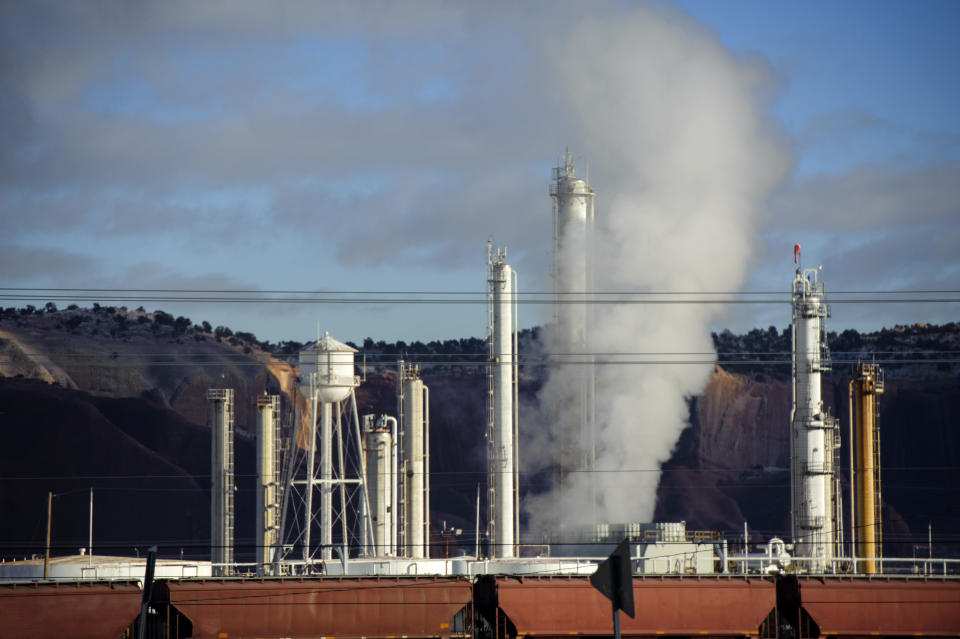RBA: Climate change will have 'first-order economic effects'

Climate change will likely have a “permanent” effect on the Australian economic and physical landscape and could lead the Reserve Bank of Australia to change interest rates in line with global warming.
That’s the spectacular warning from RBA deputy governor Guy Debelle.
Speaking to the Centre for Policy Development in Sydney, Debelle said climate change has the power to trigger economic shocks and endanger Australia’s financial landscape if it is not addressed soon.
Related story: Fall from the top: Gina Rinehart slips down 6 places on the billionaire rich-list
Related story: Adani promises to sue QLD government for $1.4bn if coal mining banned
Related story: Is the Australian economy in trouble?
“Droughts have generally been regarded – at least economically – as cyclical events that recur every so often. In contrast, climate change is a trend change. The impact of a trend is ongoing, whereas a cycle is temporary,” he said.
‘Few of these forces have the scale, persistence and systemic risk of climate change.’
“Both the physical impact of climate change and the transition are likely to have first-order economic effects.”
He said the objectives of the RBA’s monetary policy are to achieve full employment and output, and inflation.
Policy is formed with reference analysis of economic changes and forces.
“But few of these forces have the scale, persistence and systemic risk of climate change,” he warned.
“The challenges we have to address are to take the outcomes from climate modelling and map them into our economic modelling.”
Debelle said the RBA is used to forming policy with cyclical changes to climate, like periods of drought and rain, but a trend cycle like climate change is different in some significant ways.
“Companies that generate significant pollution might face reputational damage or legal liability from their activities, and changes to regulation could cause previously valuable assets to become uneconomic.”
It requires the bank to consider both the physical impacts of the change and the impacts incurred by the transition to new policies that interact with the new climate realities.
“There is likely to be volatility around the trend, with potential for damaging outcomes from spikes above the trend,” Debelle said.
“But the physical impact of climate change and the transition are likely to have first-order economic effects.”
For example, insurers could face huge and unanticipated payouts due to climate-related damage and losses, while houses and businesses could also lose access to insurance.
“Companies that generate significant pollution might face reputational damage or legal liability from their activities, and changes to regulation could cause previously valuable assets to become uneconomic.
“All of these consequences could precipitate sharp adjustments in asset prices, which would have consequences for financial stability.”
He called on businesses, regulators and governments to bear this in mind.
“Decisions that are taken now can have significant effects on future climate trends and can limit or eliminate the ability to mitigate the effect of those trends.”
Renewable energy
Coal baron and Liberal-National donor Trevor St Baker responding by calling Debelle’s speech “totally inappropriate”.
“The Reserve Bank governor, the speeches they are making, are totally inappropriate,” St Baker said in an interview with the ABC.
“The fact is in an island community, you must have at least 50 per cent at any time of the electricity demand being supported by what we call synchronous generation, that is 24/7 power: nuclear, gas, coal-fired, or baseload hydro.
“We don’t have any of those except coal as an economical source that we build a business on, and for the Reserve Bank governor to be entering the debate now, at a time when we have university students supporting, schoolchildren supporting, a strike to go 100 per cent renewable in Australia by 2030 – it’s just part of the problem – especially at election time.”
Debelle had said increasing investment in renewable energies was an example of price signals triggering “significant behavioural change”.
“There has been a rapid decline in the cost of renewable energy sources, in part because of extensive spending on research and development in renewable energy technology around the world occurring both because of government policies and private actors anticipating the transition to a lower carbon economy.
“As a result of the price decline, the investment cost-benefit analysis has changed and continues to change quite rapidly.”
Student strike
Students around the world and in Australia plan to strike on Friday over government and business inaction on climate change.
“I’ve said that I will continue to strike every Friday until Sweden is in line with the Paris Agreement. That may take a couple of years and I’ll just have to try to be patient.”
Swedish schoolgirl Great Thunberg ignited the strike action when she began riding her bike to parliament in Stockholm every day to protest last August.
“I’ve said that I will continue to strike every Friday until Sweden is in line with the Paris Agreement,” Thunberg told Reuters.
“That may take a couple of years and I’ll just have to try to be patient.”
Australian students took to the streets in November last year to protest against government inaction, despite calls from prime minister Scott Morrison to stay in class.
Make your money work with Yahoo Finance’s daily newsletter. Sign up here and stay on top of the latest money, news and tech news.

 Yahoo Finance
Yahoo Finance 
